
Asia Pacific
07:49, 06-May-2019
Abai Kunanbayev: Kazakh poet and philosopher
Bu Shi
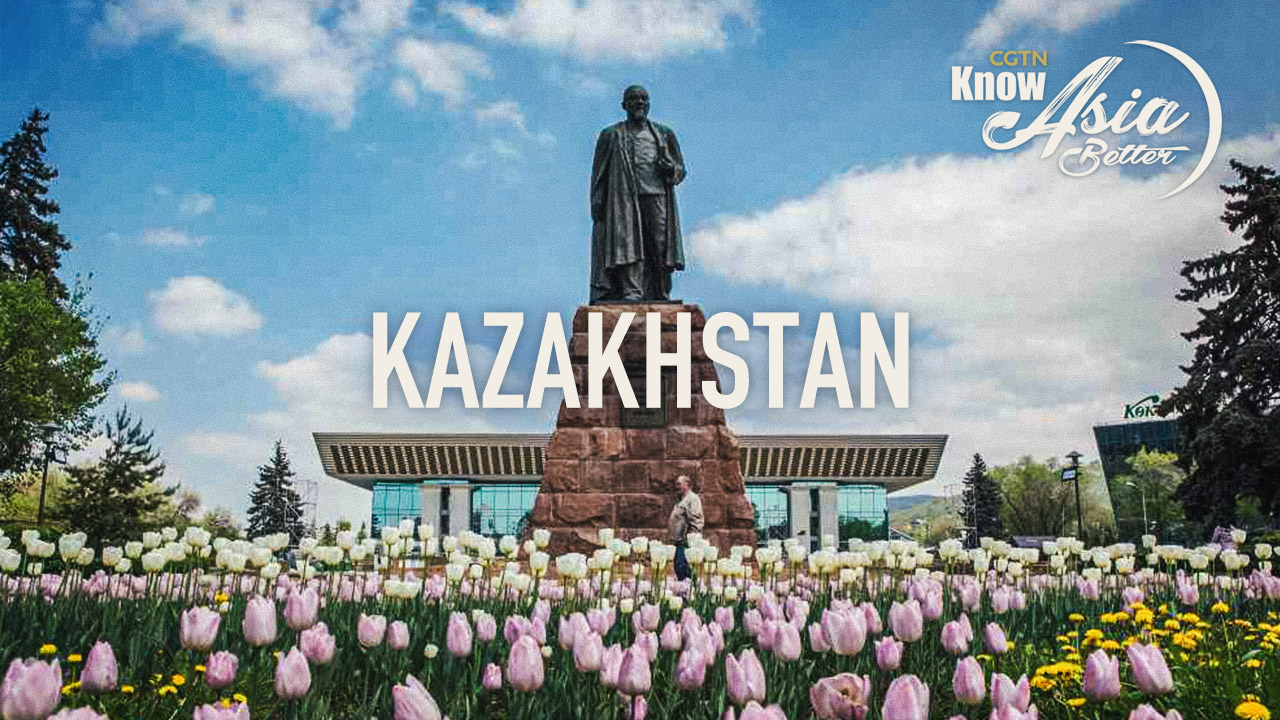
Every country has its own "cultural faces." Like Confucius to China, Shakespeare to the UK, Tagore to India – for Kazakhstan, Abai Kunanbayev is one of its faces.
Arguably one of the greatest poets of the country, Abai was also a philosopher, a musician, and an intellectual who popularized science and education.
Born in 1845 to a wealthy Kazakh family of a prominent feudal lord, Abai sympathized with people who lived under suppression in a society struggling with Muslim, Russian and traditional Kazakh norms.
His poems which covered a wide range of topics such as love, happiness and hope depicted the natural beauty of the Kazakh steppe and reflected transitions and changes in Kazakhstan's lifestyle during a turbulent time.
Through his poetry, Abai helped preserve ancient Kazakh folklore and founded Kazakhstan's written literature. Before that, the country's literature was largely passed down orally due to its nomadic traditions.
Abai himself, who was educated with both eastern and western sources also enlightened the central Asian country by translating and introducing European works and ideas of reform.
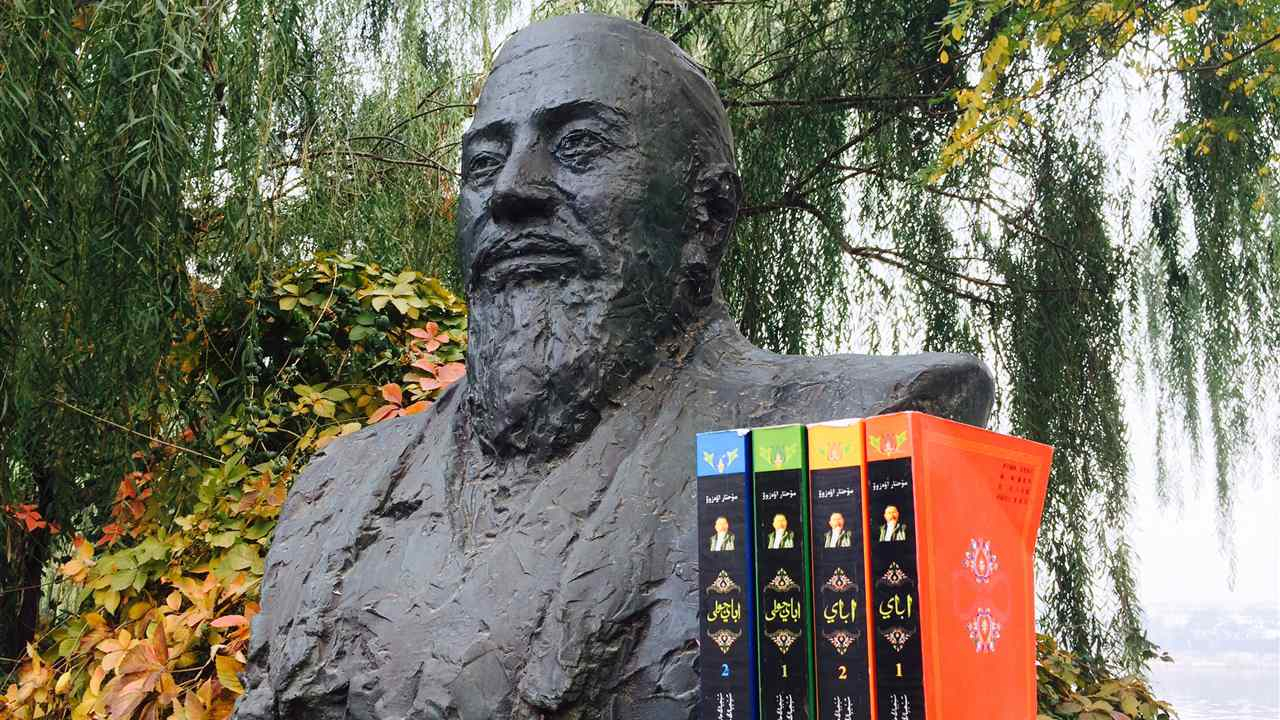
Bust of Abai Kunanbayev in Beijing's Chaoyang Park. /Jintai Museum Photo
Bust of Abai Kunanbayev in Beijing's Chaoyang Park. /Jintai Museum Photo
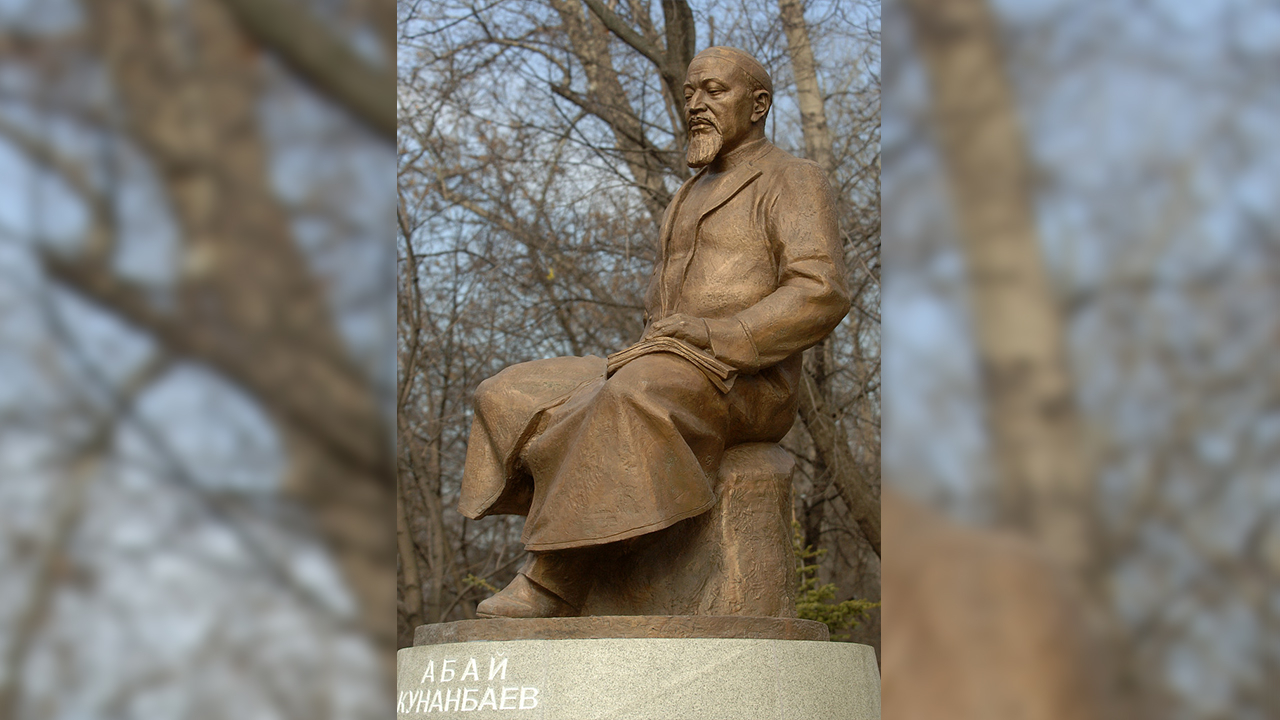
The monument of Kazakh poet and writer Abai has been unveiled on Moscow's Chistoprudny Boulevard. /VCG Photo
The monument of Kazakh poet and writer Abai has been unveiled on Moscow's Chistoprudny Boulevard. /VCG Photo
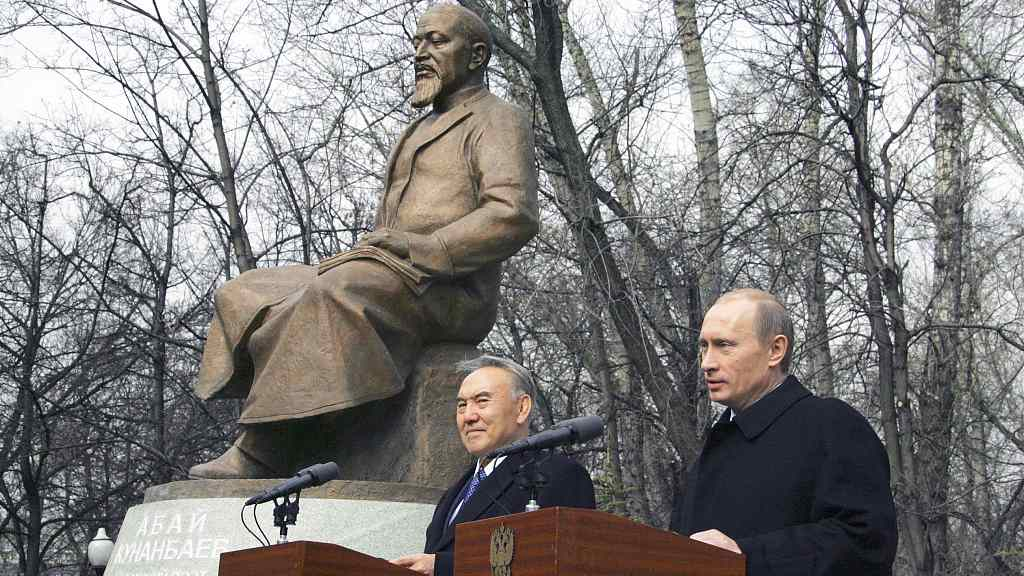
Former President of Kazakhstan Nursultan Nazarbayev and Russian President Vladimir Putin attend the unveiling ceremony of a monument to Kazakh poet and writer Abai Kunanbayev on Moscow's Chistoprudny Boulevard on April 4, 2006. /VCG Photo
Former President of Kazakhstan Nursultan Nazarbayev and Russian President Vladimir Putin attend the unveiling ceremony of a monument to Kazakh poet and writer Abai Kunanbayev on Moscow's Chistoprudny Boulevard on April 4, 2006. /VCG Photo
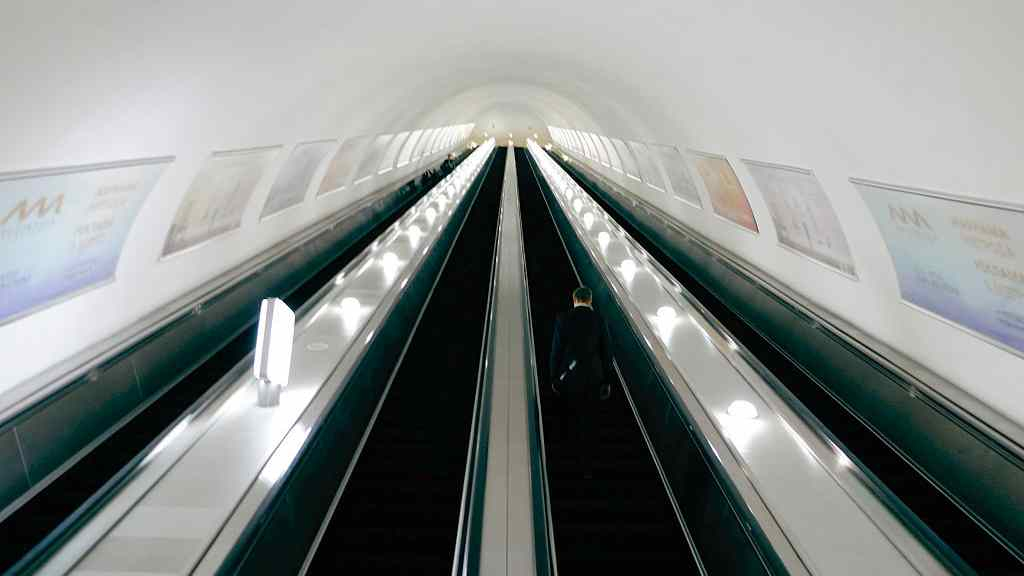
Rolltreppe der Abai Metro Station in Almaty, Kazakhstan. /VCG Photo
Rolltreppe der Abai Metro Station in Almaty, Kazakhstan. /VCG Photo
His vision grew even wider as a humanist. He believed in human dignity and unlocking human potential through education and objected to social injustice and the use of violence to settle differences between nations.
Abai passed away in 1904 yet his influence is deeply embedded in the fabric of Kazakhstan and beyond. He was featured on Kazakhstan's banknote. A subway station in the country is named after him, along with a street, a square, a theater, and many schools.
In 1995 on the 150th anniversary of Abai's birth, UNESCO celebrated it with the "year of Abai" event. He's come to represent Kazakhstan itself, with his statue being erected in global cities like Beijing, Moscow, New Delhi, Tehran, Berlin, Cairo, Istanbul, Kiev, and Budapest.
What are the cultural elements that best represent Asia? Follow up the "Know Asia Better" series. It will offer you a glimpse of 47 Asian countries, through architecture, art or cultural figures to show you a diversified Asia that you may never have noticed before. Themed in the exchanges and mutual learning among Asian civilizations and building a community with a shared future for mankind, the Conference on Dialogue of Asian Civilizations will be held in Beijing in May.

SITEMAP
Copyright © 2018 CGTN. Beijing ICP prepared NO.16065310-3
Copyright © 2018 CGTN. Beijing ICP prepared NO.16065310-3